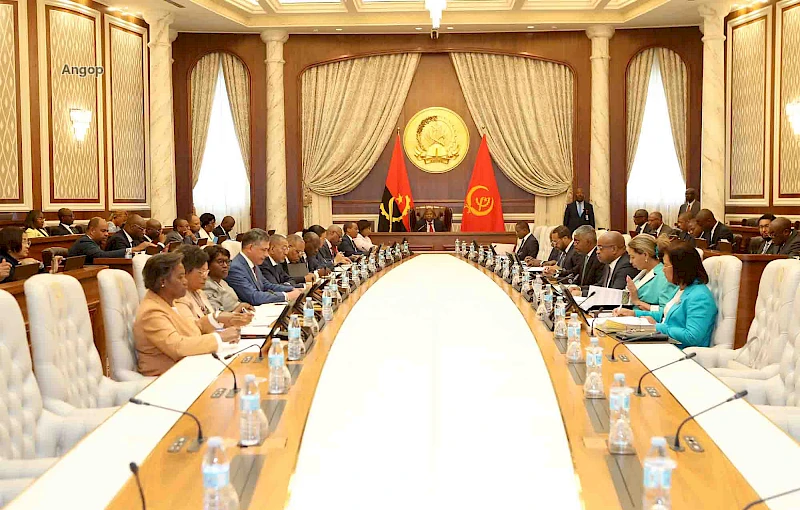Luanda – Angola’s Gross Domestic Product (GDP) recorded an estimated growth of 4.6% and 4.1% in the first and second quarters of this year, according to the Report on the Implementation of the National Development Plan 2023-2027, for the first half of 2024, assessed on Thursday by the Council of Ministers.
According to the final statement of the session, chaired by the President of the Republic, João Lourenço, it was found that the continuous increase in national food production has been influencing the slowdown in the monthly variation rate of the national consumer price index.
According to the Report, the implementation of the actions developed in the first half of 2024 allowed the achievement of quantitative and qualitative results in the most varied sectors, with emphasis on the social domains, the promotion of national production, infrastructure, construction and public works.
Gender Observatory Also in this session, this body considered the draft Presidential Decree that creates the Angolan Gender Observatory, a Digital Platform designed to gather and make available information that will support the formulation and implementation of public policies for women.
It aims to monitor indicators of gender inequality and women's rights, with a view to responding to the national and international commitments undertaken by the country.
Foreign policy
The Council of Ministers considered the SADC Protocol on Employment and Labour, the Memorandum of Understanding between the Ministries of Agriculture and Forestry of Angola and the Ministry of Agriculture and Rural Affairs of the People's Republic of China, in the agricultural sector.
The General Agreement on Economic, Scientific, Technical and Cultural Cooperation between the Angolan and Nicaraguan governments, as well as the Agreement between the governments of Angola and the Republic of Nicaragua, on the mutual exemption of visas for national citizens holding diplomatic, service and official passports, were also analysed.
The Agreement between the Governments of Angola and Panama on visa exemption for holders of diplomatic, official and service passports was also discussed, as was the Memorandum of Understanding between the Ministry of Health of Angola and Toyota Tsusho Corporation.
The Memorandum of Understanding between the Governments of Angola and the Republic of Serbia on cooperation in the field of sports and the Memorandum of Understanding between the National Institute for Investigation and Prevention of Transport Accidents (INIPAT) of the Republic of Angola and the Directorate for Investigation of Aircraft Accidents and Incentives (DIAIA) of Namibia also received attention from the participants.
The Council of Ministers is the collegial body that assists the President of the Republic, as the holder of the Executive Power, in formulating and conducting the general policy of the country and the Public Administration. Ordinary sessions take place in the last week of each month, while extraordinary sessions are held whenever convened by the President of the Republic. AFL/ART/TED/DOJ





























